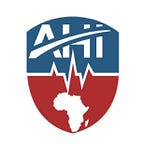In the 90s: Gabon and Ebola
Written by Harriet Mensah-Menson , 29/08/2020
About Gabon
Gabon is a Central African country that borders Cameroon, Equatorial Guinea, and the Republic of Congo. With most of the country — about 75–85% — covered by forests; it is one of the most sparsely populated countries in the world (1). Gabon is one of a few Sub-Saharan countries that holds upper middle income status, with a gross domestic product per capita [the amount of a country’s wealth divided by the number of people in that country] at $5990 USD due to its wealth of natural resources(2).
Impressively, Gabon achieved universal healthcare coverage (UHC), as defined by the World Health Organisation (WHO)*, within 10 years (3). In short, this was achieved by the expansion of Caisse Nationale d’Assurance Maladie et de Garantie Sociale (CNAMGS) launched in 2008. Initially, it covered the most vulnerable people e.g. the elderly and over time, coverage was extended to government and private sector workers(4). The scheme is part funded through a compulsory health insurance levy and the costs of medical care is reimbursed up to 90%. Coverage includes doctor’s visits, dental care, laboratory exams and hospitalization. Therefore, making it possible for all citizens, regardless of socioeconomic status to have access to healthcare(3–5). Gabon, even at independence in 1960, pledged UHC in some form or another. It is inspiring to see Gabon make these promises a reality(4,6). In between then and now, Gabon has had to deal with an increase in mortality due to…
